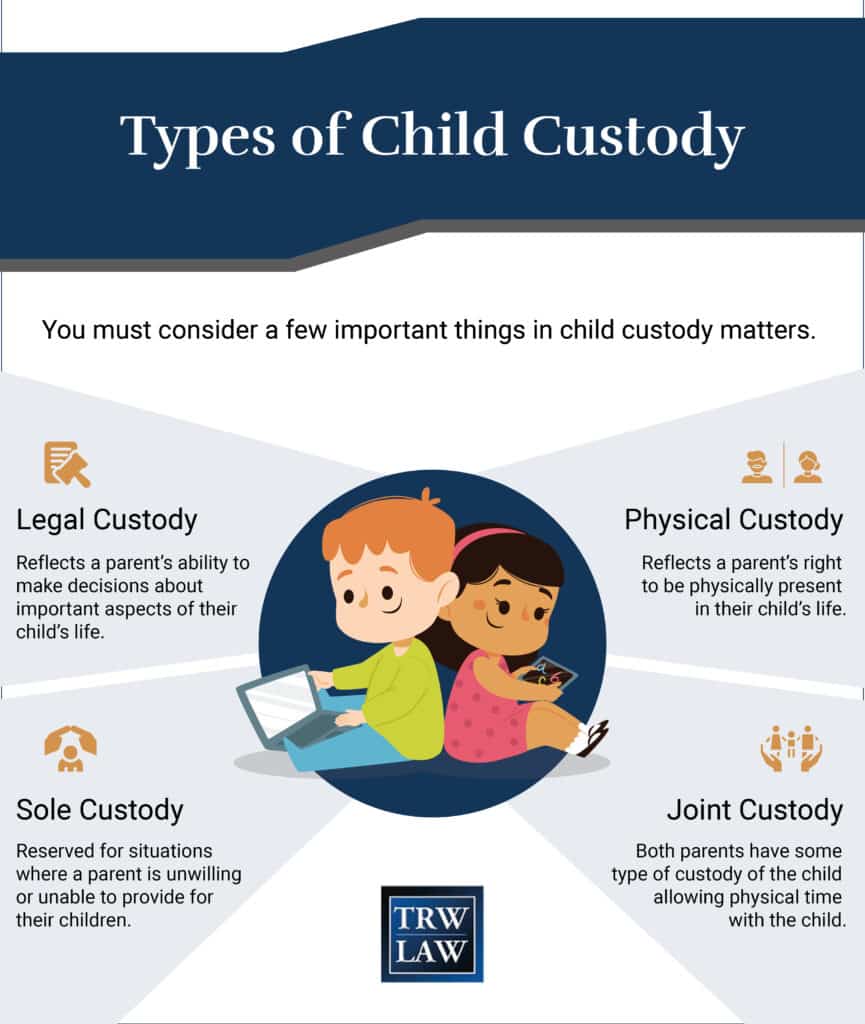Stuart Child Custody Lawyer
In Florida, child custody time-sharing agreements have to reflect the child’s best interests. Our Stuart child custody lawyers can help you assert your parental rights and advocate for a parenting plan that also puts your child’s needs and safety first.
Written and edited by our team of expert legal content writers and reviewed and approved by Attorney Travis R. Walker.
Our Child Custody
Attorneys



Parents share the equal right to be present and participate in their children’s lives. This can be complicated when parents split up or get divorced or if one parent is abusive or becomes unable to care for a child. If you face child custody issues in Stuart, Florida, putting an experienced legal advocate in your corner is critical.
At The Law Offices of Travis R. Walker P.A., our child custody lawyers have decades of experience helping parents navigate these incredibly difficult family law disputes. Contact our law office in Stuart, Florida, to learn more about our award-winning legal services and discover how we can help with your child custody case.
“In many jurisdictions, child custody disputes prioritize the best interests of the child over automatic favoritism towards one parent. Factors such as the child’s needs, parenting ability, and the child’s preferences are considered. While history of caregiving and evidence of unfitness may influence decisions, courts aim for stable, loving environments with both parents involved. Consulting a family law attorney can provide tailored guidance in navigating custody issues.”
-Travis R. Walker | Founder and Philanthropist


Child Custody Table of Contents
- Why You Want the Law Offices of Travis R. Walker P.A. Helping With Your Child Custody Case in Stuart, Florida
- Types of Child Custody
- What is a Parenting Plan?
- What Factors Does a Court Consider When Deciding a Child Custody Dispute?
- Can Child Custody Change?
- Contact Our Experienced Stuart Child Custody Lawyers for Help Today
Why You Want the Law Offices of Travis R. Walker P.A. Helping With Your Child Custody Case in Stuart, Florida
In custody cases, tension and emotions run high, which can threaten the best interests of the children who will be impacted by the custody arrangement. Our Stuart family law attorneys provide a source of strength, stability, and support for clients as we set up the best possible custody and time-sharing arrangements for everyone involved.
With our law firm handling your child custody dispute, you will benefit from a team of top-rated Florida litigators. Your child’s best interests will be central to your custody case. We embrace non-adversarial approaches to child custody disputes, such as mediation. This allows parents to find common ground, identify agreeable solutions, and maintain control over the situation.
If your case goes before a judge, our child custody attorneys in Stuart are ready to advocate for you and your child. We will argue passionately on your behalf and present the court with compelling facts, evidence, and witness testimony to support your request for custody.
Contact our legal team to discuss the details of your specific child custody dispute.
Types of Child Custody
You must consider a few important things in child custody matters. First, parents have the right to be present and participate in their children’s lives. Parents also assume a responsibility to provide for and take care of their children.
Second, children benefit from maintaining close contact—physically and emotionally—with both parents, unless spending time with a particular parent would be detrimental.
Florida law favors child custody arrangements and parenting plans that embrace both the parents’ rights and the children’s rights. Specifically, public policy in state law provides that each child “has frequent and continuing contact with both parents” after a separation or divorce.

Legal Custody and Physical Custody
Custody involves two elements. The first is legal custody, which reflects a parent’s ability to make decisions about important aspects of their child’s life, such as:
- Health care and medical decisions
- Education
- Religious upbringing
The second involves physical custody, which reflects a parent’s right to be physically present in their child’s life. Physical custody includes which parent a child lives with, when, and for how long.
Sole Custody vs. Joint Custody
Custody arrangements determine whether parents have joint custody or if one parent will have sole custody of the children. Custody can be mixed and matched too.
For instance, parents could have joint legal custody of their children, but one parent might have sole physical custody. In most cases, either one parent has exclusive custody of their children (physical and legal) or both parents share all custody jointly.
Sole custody is typically reserved for situations where a parent is unwilling or unable to provide for their children or unable to be physically present in their lives.
What is a Parenting Plan?
When parents share joint physical custody of a child, they must figure out which parent the child will live with and when. The details of this arrangement are documented in a parenting plan. Parenting plans must cover how important aspects of a child’s day-to-day life will be handled:
- Holidays and vacations
- Extracurricular activities
- Doctor’s visits
- Schooling
- Out-of-state travel
The time-sharing agreement should also discuss drop-off and pickup, contact between parents, and contact between the children and each parent.
For example, a parenting plan might explain that a child lives with Parent A during the week and spends every other weekend with Parent B. However, Parent B also enjoys the opportunity to take the child to and from extracurricular activities during the week and spend Christmas and Thanksgiving together.
Parents need to identify the best arrangement for their children and work to execute a plan that reflects their best interests. Often, this involves putting aside personal grudges and wishes so the child will benefit and be safe.
Our child custody attorneys in Stuart can help you outline a time-sharing agreement that helps you maintain a healthy relationship with your child while also ensuring that their needs—including health care, education, and extracurriculars—are satisfied.
What Factors Does a Court Consider When Deciding a Child Custody Dispute?
Parents reserve the right to hash out a time-sharing agreement on their own. However, if any aspect of a custody agreement or parenting plan is disputed, a court will step in and decide the terms. Several factors can impact a child custody decision:
- Evidence of child abuse or domestic violence
- Each parent’s ability to provide for the physical and emotional well-being of the child
- The child’s relationship with each parent
- The child’s current physical location and routine—including school, activities, and relationships with friends
- The moral fitness of the parents
- Each parent’s physical and mental health
- Each parent’s willingness to maintain a close and continuing parent-child relationship and to honor the terms of a time-sharing agreement
- The noncustodial parent’s ability to pay child support
A judge might also take a child’s preference into consideration, particularly if the child is older.
You can support your request for child custody by presenting the judge with evidence that demonstrates (a) you are a willing and capable parent who will provide a stable home and loving environment for your child, and/or (b) the child’s other parent is unfit due to substance abuse problems, volatile relationships, a history of abuse or neglect, or psychological or mental health problems.
Evidence can include court records, police reports, testimony from friends and family, expert testimony, photographs or videos, or other documentation.
If your child custody dispute goes before a judge, our attorneys will work to defend your name as a fit parent and advocate to secure a child custody arrangement that keeps your child safe and secure.
Can Child Custody Change?
Yes. Child custody agreements can be temporary or permanent. For instance, you might have a temporary time-sharing agreement for the duration of a divorce. Once the divorce is finalized, a different set of terms might come into effect.
While the terms of a child custody agreement are binding, they can be changed if a parent petitions the court. A court might agree to modify a child custody agreement if:
- Both parents enter into a new time-sharing agreement willingly and the new terms still represent the child’s best interests
- Evidence proves that a child is in danger while in one parent’s custody
- A parent repeatedly violates the terms of the parenting plan
- A parent moves away and needs to adjust the time-sharing agreement to maintain close and continuing contact with their child
Ultimately, there must be a “substantial, material, and unanticipated change of circumstances.”
If you need to modify the terms of your child custody agreement or want to fight against proposed changes, contact our Stuart family law attorneys for help.
Do you have questions about Family Law? Explore our Family Law FAQ page.
Contact Our Experienced Stuart Child Custody Lawyers for Help Today
Child custody is one of the most important aspects of a divorce. The terms of a time-sharing arrangement will affect the children every day, so it is critical that the terms are right. However, it can be difficult to set emotions aside as both parents develop a plan. In some cases, it can be near impossible to find common ground. That is where our Stuart child custody lawyers can help.
At The Law Offices of Travis R. Walker P.A., we understand how challenging family law disputes can be. We are here to offer experienced legal guidance and advocate for your child’s best interests. Our attorneys will provide the support and level-headed advice you need along the way. So contact the experienced team of family law attorneys at Travis Walker Law, and arrange a consultation to learn more today.
Your Three Steps to Moving Forward
Call our office or complete our contact form and set up an intake call with our Intake Coordinator.
Attend a virtual or in-office consultation so we can better understand your case and determine how we can help guide you to success.
Retain our firm so we may lead you through the legal process as quickly and painlessly as possible.
Currently Accepting New Clients
Our Office
Port St. Lucie OFFICE
-
10026 S U.S. Hwy 1
Port St. Lucie, FL 34952 - 772-325-1860
- 772-673-3738
Client Testimonials
Simply enter your email below and join our growing community of informed individuals.










